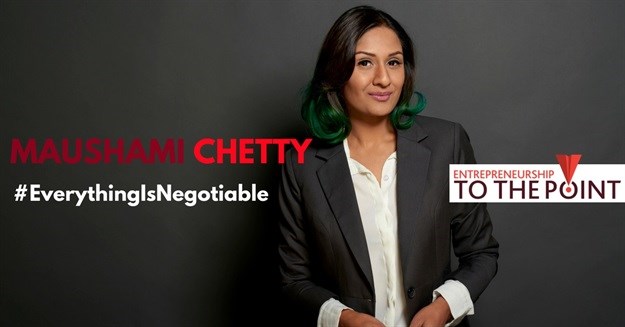How to develop your negotiation skills to be a better entrepreneur

Zooming in on the neuroscience and emotions of good dealmaking, Chetty revealed valuable insights at a recent Entrepreneurship To The Point Session hosted by Property Point, the Growthpoint Properties initiative.
Chetty starts by pointing out that optimal brain functioning takes place when we trust people and when we feel like we’re rewarded. She says: “The human brain evolved along with commerce; we are highly social beings. We’ve adapted to cooperate for mutual benefit and our brain structures have evolved to make us better cooperative thinkers. Our brains are designed to negotiate and to crave rewards.”
On the other hand, when we feel threatened, the fight-and-flight response can completely derail our ability to make good decisions. Chetty warns: “We may think that we are rational human beings, and that we make good decisions, but that isn’t always the case. The rational mind is relatively slow compared to the ‘animal’ part of your brain, which is completely instinctive. The rational mind is also slowed down by competing goals and, in stressful and threatening situations, you are more likely to make a gut decision, which is not rational."
But what does this all have to do with negotiating?
Negotiation is defined as a discussion aimed at reaching an agreement. So, for successful dealmaking it helps to go into negotiations with the aim of actually reaching an agreement.
“Even though, as social creatures, our brains crave reward, it is best to avoid falling into a mindset of win-lose, rather you want a win-win – or at least a perceived win-win,” advises Chetty.
“Some may think that it is a good tactic to push your negotiating counterpart, make them feel threatened, put them on edge. But, when people feel like that, they become irrational, so that makes it more difficult to control the negotiation,” notes Chetty.
Essentially, having either negotiating party in an irrational place puts desirable outcomes at risk.

Instead of antagonising your negotiation partner, Chetty’s experience has shown that helping them feel rewarded and valued has better results. One of the tools that she recommends is making a list of low-hanging fruit that you are willing to offer to concede, even if they don’t ask.
“Relating to your counterparts in a way that affirms them in these areas sets a positive foundation for discussions, improves collaborations and helps to influence the way that people behave.”
But, says Chetty, to use this advice, first entrepreneurs need to remember that they can and should negotiate. Small businesses may believe that they have no influence on big business, and for good reasons based on past experiences. Things are changing, however, because the value that small businesses can add to big businesses is becoming better understood and increasingly recognised.
“Big corporates are more willing to negotiate than you may expect. Yes, certain things are non-negotiable. But, if you don’t ask, you’ll never know. Try, you may be pleasantly surprised,” encourages Chetty. “Also, if your service is unique, presenting your own contract may be a great way to assist corporate legal teams to help understand a new type of business relationship.”
She feels entrepreneurs should always consider negotiating on price or value, risk and assumption of liability, intellectual property, security, confidentiality and non-disclosure and payment terms.
She also believes that working with big corporates isn’t the right move for every entrepreneur. “Sometimes it seems so tasty to work with big corporates, but it may not always be the best for your business. There are times when it is in your best interests to walk away.”
“It’s not easy at first. The more you do it, the better you get,” she reassures. “There’s always someone who has been negotiating longer than you and is better. All the same, often people will like you for doing the right things, even if they are aware of the techniques you are using.”
Find the podcast from this event at www.ettp.co.za.




















